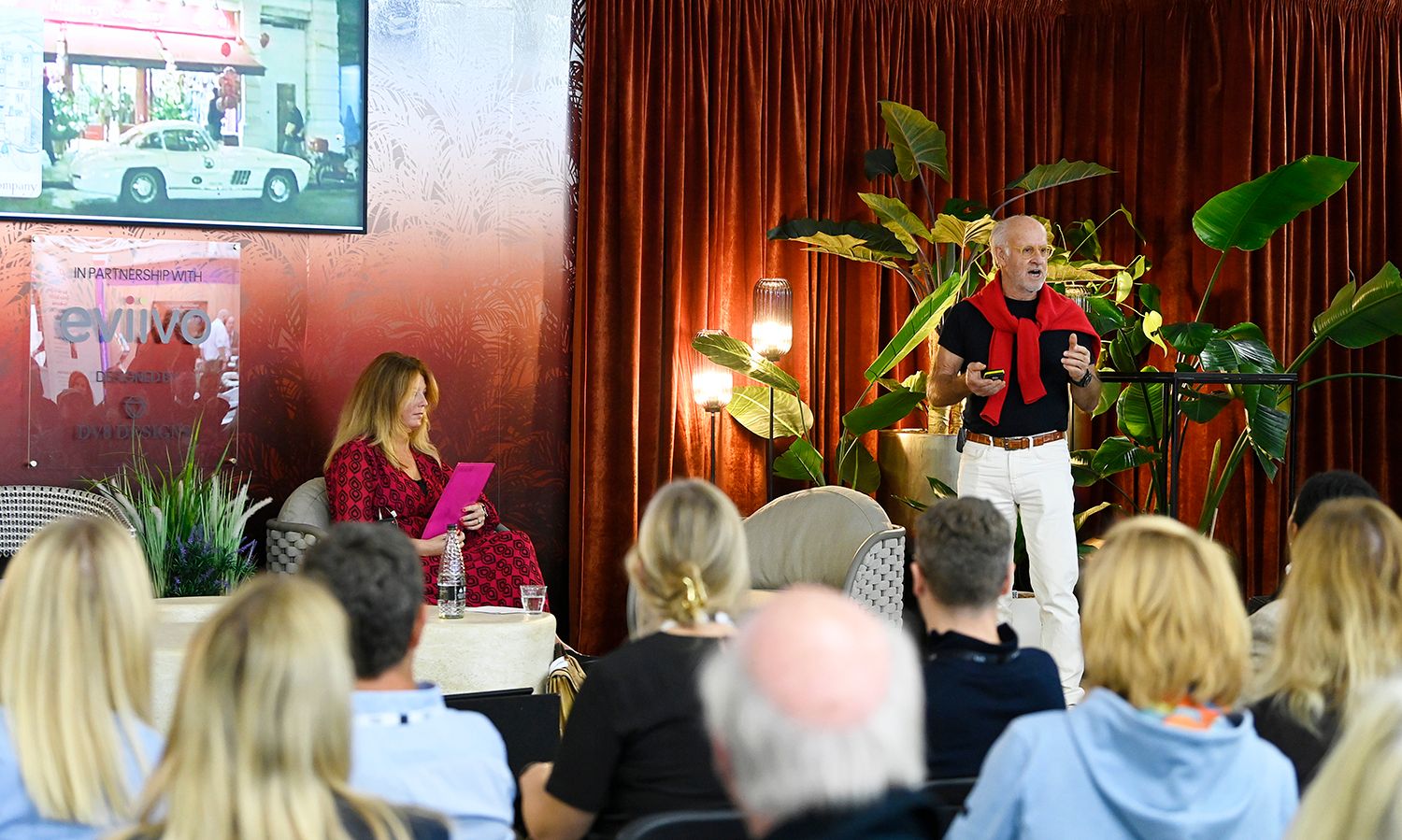"Luxury is a word I don't really like" - Mulberry Founder Roger Saul at the Independent Hotel Show

At the Independent Hotel Show, in partnership with James Hallam Insurance Brokers, Mulberry Founder Roger Saul joined Petra Clayton, CEO of CUSTARD, for an honest and wide-ranging conversation about building brands, learning from failure, and redefining what luxury means.
Saul opened with a reflective look back at his career, starting with the creation of Mulberry in the early 1970s. What began with belts and leather planners evolved into one of Britain’s most recognisable fashion houses. Along the way came bold pivots, creative experimentation, and the occasional misstep. “You’ve got to be prepared to change direction,” he said, recounting how Mulberry expanded into homeware and embraced celebrity partnerships in pursuit of a broader audience.
Yet for Saul, growth has never meant losing sight of purpose. “Take risks but know when it’s not working,” he cautioned. “There are lots of times we’ve been too early or too late.” He spoke candidly about how timing, resilience, and self-awareness have shaped his journey across industries—from fashion to hospitality to farming.
Reflecting on his experience running a hotel, Saul admitted that he underestimated the intensity of delivering excellence around the clock. “When we opened a hotel, I failed to realise the customer would be with us 24 hours a day, so we had to up our standards. We were trying to achieve a luxury experience,” he explained. But his relationship with the word ‘luxury’ remains complicated: “For me, luxury is a word I don’t really like. I wanted to be hip and cool. I had to make a decision.”
Throughout the conversation, Saul returned often to the importance of loyalty and identity. “If you have customers, for Christ’s sake don’t let them go,” he urged. “We’re always trying to enter new markets and widen our business, but your core customer—particularly for a hotel—is everything. If you know they want to come back to you, you can be their home. But you do have to challenge and surprise them.”
For him, the challenge is staying focused on what makes a brand truly distinctive. “Be yourself and know the ingredients that make you amazing,” he said. Even in difficult periods, when progress feels slow or uncertain, Saul’s advice is to “come back to your unique values”.
He also discussed the importance of authenticity in hospitality design and guest experience. Mulberry’s hotel was one of the first to remove the traditional reception desk, a move intended to make the first touchpoint more welcoming. “The first touch point can be the worst,” he noted, encouraging hoteliers to rethink the guest journey from the very start.
When asked about modern marketing, Saul acknowledged how much harder it has become to stand out. “Working with influencers, engaging with press, trying to give them something fresh—it’s much harder now,” he said. But the principles of genuine hospitality remain the same: “Little things that are special and unexpected—that’s luxury.”
The conversation closed on a characteristically honest note. “Harsh reality,” Saul said. “Most of my life has been underwater. Occasionally you get to come up for air. You always need to come back to your unique values.”
It was a reminder that even for one of Britain’s most enduring entrepreneurs, success comes not from chasing trends but from returning, time and again, to what matters most.
)
)
)
)
)
)
)
)
)
)
)
)
)
)
)
)
)
)
)
)
)
)
)
)
)
)
)
)
)
)
)
)
)
)
)
)
)
)
)
)
)
)
)
)
)
)
)
)
)
)
)
)
)